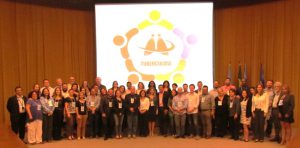Towards universal access to diagnosis and treatment of multidrug-resistant and extensively drug-resistant tuberculosis by 2015
Statement from Dr Mario Raviglione, Director, Stop TB Department
Progress in countries
Today, for World TB Day, we launch a new report Towards universal access to diagnosis and treatment of multidrug-resistant and extensively drug-resistant tuberculosis by 2015.
Progress is being made, but the response is far from sufficient given the MDR-TB threat facing the world. Two years on from the Beijing declaration – which was endorsed by all 27 high burden countries featured in this report – the commitments by some countries are too slow off the mark or simply stalled.

This new WHO report underlines the need for countries to implement all necessary measures to address MDR-TB, otherwise the universal access target, set by the World Health Assembly in 2009, will not be achieved by 2015, with the loss of hundreds of thousands of lives.
In relation to the 27 high burden MDR-TB countries:
Funding: MDR-TB action plans exist in most of the 27 countries. Funding has increased, from $0.1b in 2009, to $0.5 billion in 2011. However, the estimated need in the Global Plan for MDR-TB worldwide in 2011 is $0.9b.
Labs: Capacity has increased, but is still only adequate in 60% of the countries.
Treatment: Only one-in-ten MDR-TB patients have access to treatment – and cure rates range widely from 25% to 82%.
Drugs: The Global Drug Facility has more than doubled the number of finished pharmaceutical products for MDR-TB from 11 in 2008 to 25 today.
Treatment capacity: If diagnostic capacity increases substantially in the next few months, the availability of second line drugs to treat all those diagnosed will be a challenge.
TB infection control: In many countries this is still at a planning stage.
Surveillance: Major progress has been made. By mid 2012, all 27 countries will have representative information on drug resistance.
The report also features 27 country profiles, plus highlights of initiatives in:
- Bangladesh (private sector involvement)
- DR Congo (strengthening planning and budgeting)
- India (laboratory scale up and engagement of private labs)
- Philippines (PPM scale up)
- South Africa (scaling up access via community engagement)
